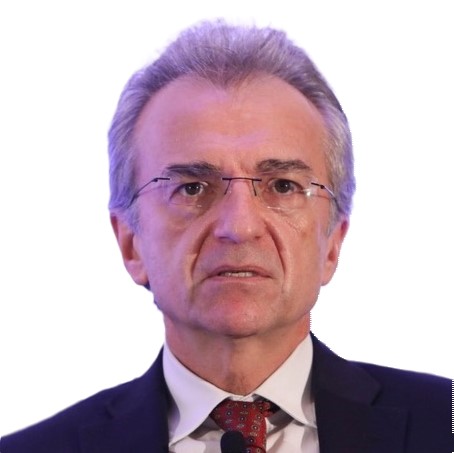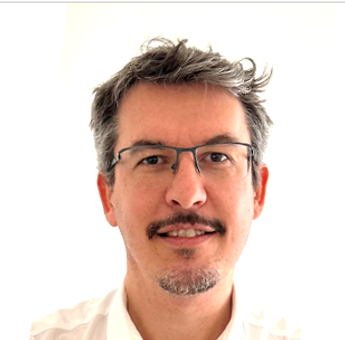
Session 2: Maximizing the survival benefit through a sequential treatment strategy in locally advanced or metastatic urothelial cancer
Release date: 09-05-2024
Expiration date: 08-05-2025
The increasing availability of treatment options in the first-line (1L) setting after ESMO 2023 has led to a growing complexity in determining sequential treatment strategies for different clinical scenarios following progression of 1L therapies. In this educational program on 'Best Practice Exchange in Clinical Case Scenarios', field experts will discuss the latest evidence supporting the optimal utilization of sequential treatments, including immunotherapy, chemotherapy (CT), antibody-drug conjugates (ADCs), and targeted therapies, to prolong continuum of care and maximize survival benefits for patients. A better understanding of how to sequence available options for second-line (2L) and salvage treatments in routine patient care will facilitate optimal management of urothelial cancer patients.
This English program is available with subtitles in the following languages:

Faculty

Aristotelis Bamias, MD, PhD
National and Kapodistrian University of Athens
ATTIKON University Hospital
Athens, Greece
Aristotelis Bamias is Professor at the Medical School, University of Athens, in Greece. He studied Μedicine in the Medical School of the University of Athens and trained in Ιnternal Μedicine and Μedical Οncology in the United Kingdom, at the Hammersmith, Royal Marsden and St Bartholomew’s Ηospitals in London. Professor Bamias successfully completed his thesis at the University of Athens and subsequently obtained a PhD from the University of London, working on the application of monoclonal antibodies to cancer diagnosis and treatment. He served as Lecturer in Medical Oncology at the University of London. He is now a practicing medical oncologist in Greece at the 2nd Propaedeutic Department of Internal Medicine of the University of Athens at the ATTIKON University Hospital in Athens. He has been the Director of this Dept from 2019 to 2022.
Professor Bamias’s main research focus in oncology is urogenital and gynaecological tumours. He was the coordinator of the genito-urinary working group of the Hellenic Cooperative Oncology Group (HECOG) for 10 years and the representative of HECOG at the European Network Gynaecological Oncological Trial Groups (ENGOT) for 3 years. Professor Bamias is a founding member and currently vice-Chair of the Hellenic Genito-Urinary Cancer Group (HGUCG). He is also a member of the International Metastatic Renal Cell Carcinoma Database Consortium (IMDC) and the Retrospective International Study of Cancers of the Urothelial Tract (RISC) Investigators.
Professor Bamias is a member of the Royal College of Physicians (MRCP, UK), full member of the European Society for Medical Oncology (ESMO), the American Society of Clinical Oncology (ASCO) and the European Society of Gynaecological Oncology (ESGO). He has been a member of the ESMO Faculty for Genitourinary Cancer since 2012 and he chaired this group from 2016 to 2020. He has been member of the scientific committees of ESMO and EMUC Congresses since 2016, invited faculty in the respective congresses and organized several ESMO educational activities. A member of several international advisory boards, steering committees of international trials and Consensus Groups, he has led numerous national and international, industry-sponsored and academic studies and he has published more than 350 original papers and reviews in peer-reviewed journals, including the N Engl J Med, Lancet, Lancet Oncology, J Clin Oncol and Eur Urol with more than 20000 citations by other authors and a current h-index of 71.

Philippe Barthélémy, MD, PhD
Institute of Cancer in Strasbourg (ICANS)
Strasbourg, France
Philippe Barthélémy is a medical oncologist in the Department of Medical Oncology at the Institute of Cancer in Strasbourg (ICANS), France. He serves as the Head of the Genitourinary team and Clinical Research Committee and co-leads the Molecular Tumor Board at ICANS.
He completed his internship at the University Hospital of Strasbourg, France and obtained his Doctor of Medicine degree in 2009 and his thesis in molecular biology in 2016 from the University of Strasbourg. During his specialization in medical oncology, he received training in clinical development for new anticancer drugs at the Jules Bordet Institute in Brussels under Professor Ahmad Awada's supervision.
Dr. Barthélémy is currently serving as Principal Investigator (PI) and Sub-Investigator (SI) for over 50 ongoing trials while also having authored/co-authored numerous publications in recognized scientific journals. His primary research interest lies in developing new therapies for renal cell carcinoma and urothelial cancer. He is a member of ESMO, French GETUG group, Oncodistinct group, and also serves on the RCC committee within the French Association of Urology.

Kate Smith, MBBS, MRCP, MD, PhD
Guy’s and St Thomas
NHS Foundation Trust
London, UK
Kate Smith is currently the consultant Medical Oncologist at Guy’s and St Thomas NHS Foundation Trust in London, UK. She graduated from University College London in 2006 after completing a degree in Natural Sciences at the University of Cambridge. In 2010, she was appointed as a National Institute of Health Research Academic Fellow in Medical Oncology and received her training at St Bartholomew’s Hospital and the Royal Free NHS Trusts. She completed her PhD at Bart's Cancer Institute, focusing on hypoxic deregulation in clear cell renal cell carcinoma, and obtained her PhD degree in 2019.
Dr. Smith was appointed a Locum Consultant at the Royal Free NHS Trust in Genitourinary Oncology in 2020 and to a permanent position at Guy’s and St Thomas in 2022. She manages all urological malignancies with a focus on urothelial and prostate cancers. She is also the joint lead for urothelial cancer management.
The proposed initiative is specifically designed for medical oncologists, urologists, and other healthcare professionals involved or interested in the management of urothelial cancer.
Upon completion of this educational activity, participants should be able to:
- Identify how to sequence available options for second-line (2L) and salvage treatments of unresectable LA/m UC
- Establish confidence and expertise in selecting optimal strategies for sequential treatment of unresectable LA/m UC
- Develop strategies for the prevention and management of adverse events (AE) associated with the range of treatments used in unresectable LA/m UC
This educational activity is provided by ACE Oncology.
This educational activity is supported by an independent grant from the Healthcare business of Merck KGaA, Darmstadt, Germany.
The Faculty of Pharmaceutical Medicine has approved this event for continuing professional development (CPD) and allocated it 2 CPD credits.
This activity provides content that is evidence-based, balanced, and free of commercial bias, with a primary objective to improve the competence and performance of learners in order to improve patient care.
The faculty reported the following financial relationships or relationships to products or devices they or their spouses/life partners have with commercial interest related to the content of this activity:
Aristotelis Bamias has served as an advisor or consultant for BMS, IPSEN and MSD. He has also served as a speaker or a member of a speakers bureau for BMS and Merck. In addition, he has received grants for clinical research from BMS, IPSEN, Pfizer and Roche. He has agreed to disclose any unlabeled/unapproved uses of drugs or products referenced in his presentation.
Philippe Barthelemy has served as an advisor or consultant for Astellas, Astra Zeneca, BMS, Cilag, Eisai, IPSEN, Janssen, Merck, MSD, Novartis and Pfizer. He has also served as a speaker or a member of a speakers bureau for Astra Zeneca, BMS, Eisai, IPSEN, Merck, MSD and Pfizer. In addition, he has received grants for clinical research from BMS and IPSEN. He has agreed to disclose any unlabeled/unapproved uses of drugs or products referenced in his presentation.
Kate Smith has served as a speaker or a member of a speakers bureau for Astellas and Bristol Myers Squibb. She has agreed to disclose any unlabeled/unapproved uses of drugs or products referenced in his presentation.
The employees of ACE Oncology have disclosed no relevant financial relationships.
ACE Oncology requires instructors, planners, managers, and other individuals who are in a position to control the content of this activity to disclose any real or apparent conflict of interest (COI) they may have as related to the content of this activity. All identified COIs are thoroughly vetted and resolved according to ACE Oncology’s policy. ACE Oncology is committed to providing its learners with high-quality activities and related materials that promote improvements or quality in healthcare and not a specific proprietary business interest of a commercial entity.
